Obsession Is Not Optional
One benefit of reading biographies is that you tend to notice similarities between people who wouldn’t otherwise seem to have anything in common.
It’s easy to miss because biographies are focused on the accomplishments of one person. Authors write about their subjects in a way that makes their stories feel unique. However, when these stories are put side by side, the most accomplished individuals actually appear strikingly similar.
We’re taught that “history repeats itself” at an early age. Yet, it seemed strange to me that so many influential people share common characteristics, despite huge differences in circumstance.
The simple explanation for this seems to be selection bias: people who have certain traits accomplish things that biographers tend to write books about. We hear about these traits because they cause the subjects to leave an impact on the world.
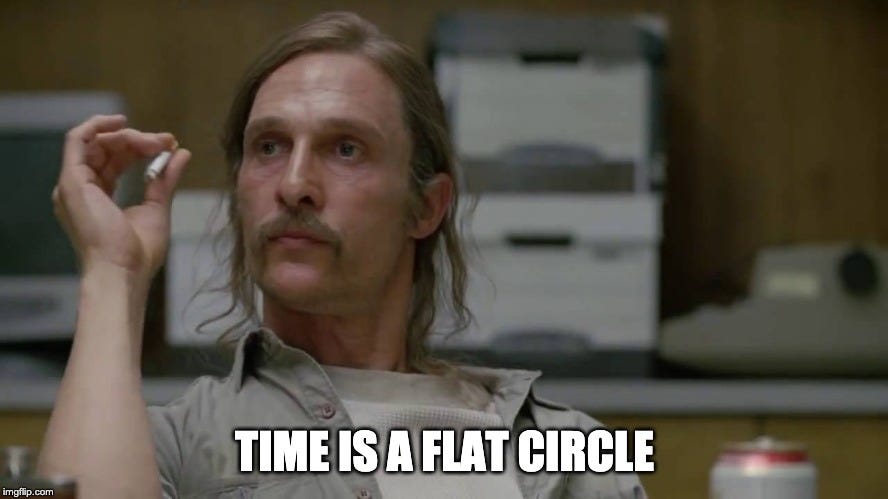
I was curious: what is the common element between some of the most prolific writers, inventors, and athletes in modern history? Across dozens of stories, I kept coming to the same answer: obsession.
The most successful people have an obsession that forces them to make huge amounts of progress in a specific area. In today’s world of “work-life balance”, this kind of obsession is a four-letter word.
Different obsessions have different time commitments. It’s misleading to assume that success requires abandoning your friends, divorcing your spouse, and shutting yourself away from the world to fulfill your interest in a topic. However, it’s hard to have your cake and eat it too. Biographies are littered with stories of estranged families, strained friendships, and loneliness. Obsession and strife are not synonyms, but they do rhyme. When given the choice, most of us choose moderation. The sacrifices are simply not worth the tradeoffs to the majority of people.
If success is often precluded by obsession, then why don’t more people with obsessive interests end up rich? There are countless people who have an obsessive interest in a topic that turns out to go nowhere.
It’s not enough to merely be obsessed. You also have to be obsessed with something that turns out to be valuable. Paul Graham notes in his essay, The Bus Ticket Theory Of Genius:
Darwin couldn't turn it off. Neither could Ramanujan. They didn't discover the hidden paths that they did because they seemed promising, but because they couldn't help it. That's what allowed them to follow paths that someone who was merely ambitious would have ignored. […]
It's a mistake to think they were "laying the groundwork" for the discoveries they made later. There's too much intention in that metaphor. Like bus ticket collectors, they were doing it because they liked it.
But there is a difference between Ramanujan and a bus ticket collector. Series matter, and bus tickets don't.
This obsessive interest needs to be aligned with a natural inclination for the topic. If you’re obsessed with playing sports, but not a particularly capable athlete, then there is a mismatch. For some, the obsession and talent aligns in a way that produces fantastic results. If it also happens to create value for the world, then you’ve got a recipe for success.
I’ve also found that obsession tends to manifest itself differently. I classify obsession into two buckets:
Those who are obsessed with the result
Those who are obsessed with the process
The common element is obsession, but the focus is very different. Across industries, these two approaches have lead to some of the most popular books, companies, and dynasties. I want to share a few examples that I found interesting.
Business

Elon Musk wants to go to Mars. His obsession with this result has lead to the creation of Tesla, SpaceX, and a sprawling group of engineers dedicated to achieving it. For Elon, the goal is pulling him forward, shaping the tasks of his daily life and companies.
From Ashlee Vance’s biography of Musk:
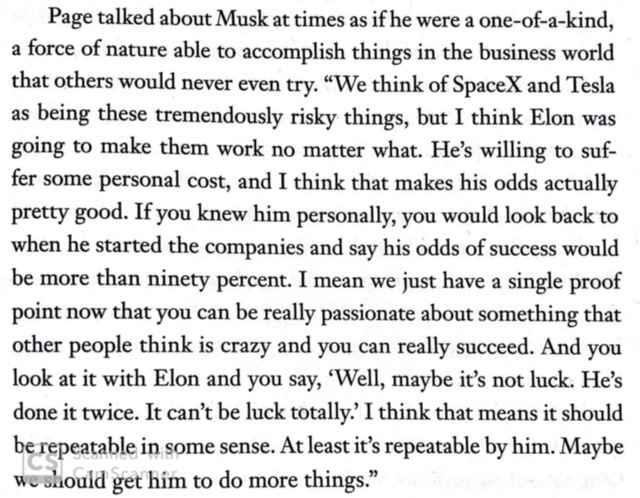
The quote above is from Larry Page, founder of Google and one of the most successful businessmen on the planet. Yet, when he talks about Elon he does so with a tone that borders on reverence. What’s important to notice is that he actually misunderstands why Elon has accomplished these tasks.
By saying “maybe we should get him to do more things”, he assumes that people with obsessive interests are like machines; you can just point and shoot. Instead, these interests need to be deeply ingrained within the person. A better question to ask would be: how can we foster obsessive interests in important topics as part of our primary education system?
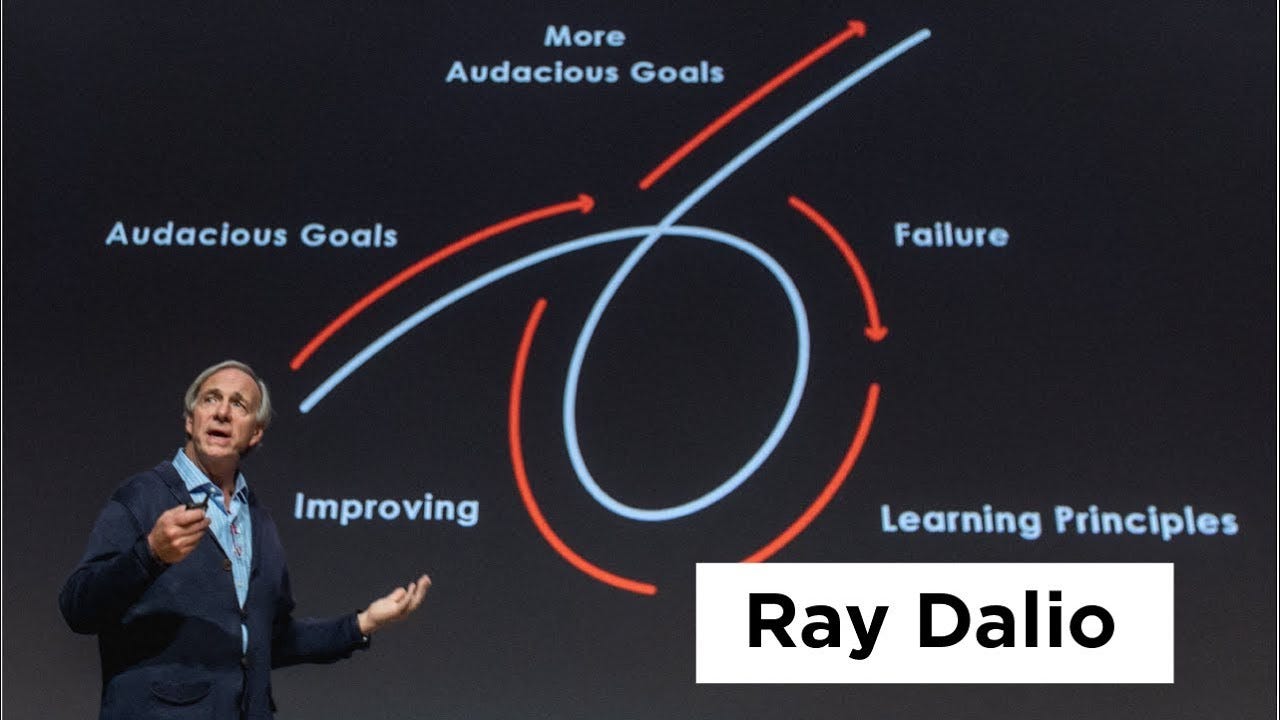
Ray Dalio wants to be right. Despite making billions of dollars and stepping aside as the most successful hedge fund founder in the world, he is still obsessed with perfecting his process for making decisions. For Ray, the journey is a continuous opportunity for improvement and will never be completed.
Ray has created an extensive list of Principles that guide every action. His company, Bridgewater Associates, records every meeting so employees can watch as important decisions are made and analyze the results. Ray has audacious goals that make him successful, but the act of continually iterating on his process is what drives him.
Writing

Stephen King is obsessed with the process of writing. As one of the most prolific authors of our generation, he has written nearly 100 novels, short stories, and collections. His memoir, On Writing, gives a glimpse into his mindset.

He writes 2,000 words a day, and these stories have become part of our cultural fabric. King’s process means that he doesn’t let himself out of this commitment, even if it takes the whole day. Good stories don’t spring up fully formed, and if he only took pleasure from the end result then writing would be an excruciating process.
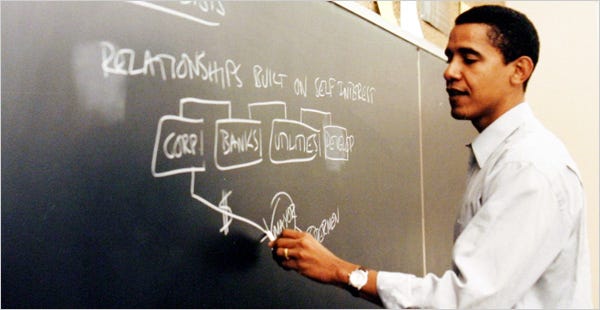
Barack Obama is one of the best speechwriters in politics. His keynote speech at the Democratic National Convention launched him into the public spotlight and primed the public for his presidential campaign.
Before this speech however, he was an aspiring lawyer with a story. He knew that telling his unique story was a requirement for a successful career in politics. His obsession with reaching this goal meant leaving his family, including his new wife, to spend time on a remote island that removed distractions. In Michelle Obama’s Becoming, she talks about how this decision impacted the family:
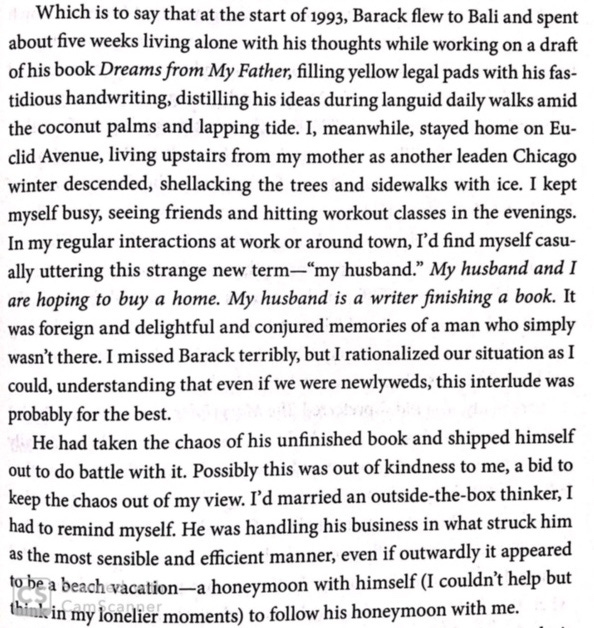
For Barack, the obsession with finishing the book was enough to drive him to live in solitude, despite the consequences it caused back home.
Sports
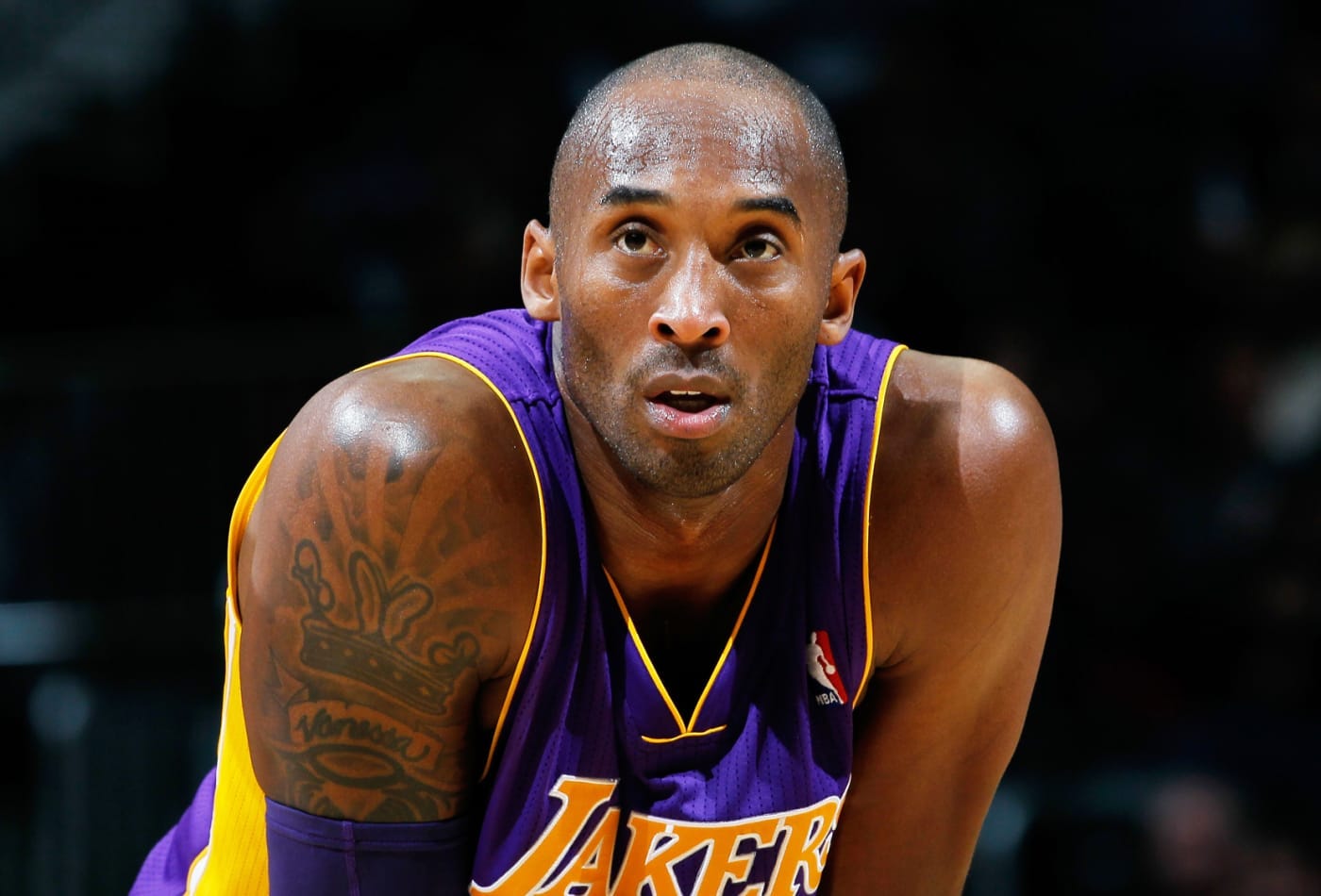
Kobe Bryant remains one of the largest role models for students and athletes all over the world. His work ethic is famous; he would routinely show up hours early to practice, already drenched in sweat by the time his teammates arrived.
After (both) his numbers were retired in Los Angeles, his former teammates reminisced on what it was like to practice with Kobe:
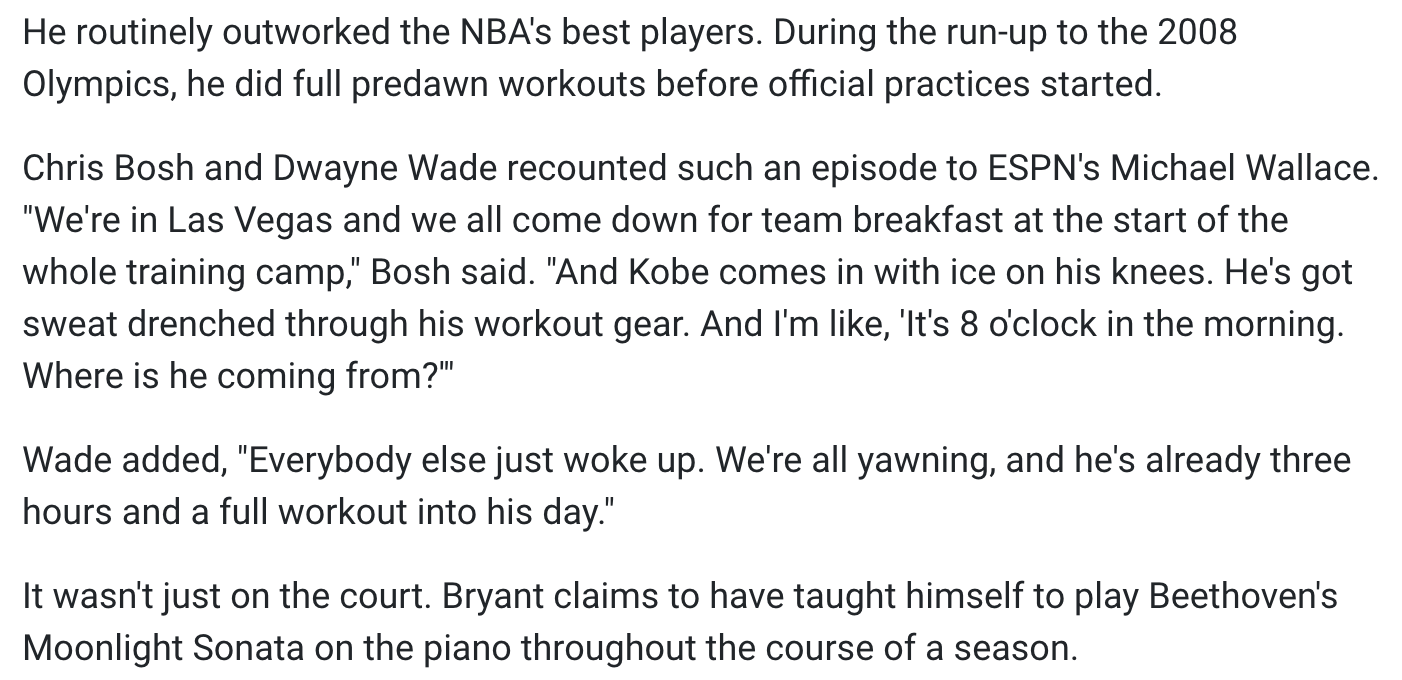
There are two types of people: people who love the process, and people who love the goals. Kobe is a rare blend of both, but his dedication to the process of practicing and sheer work ethic is nothing less than obsession.
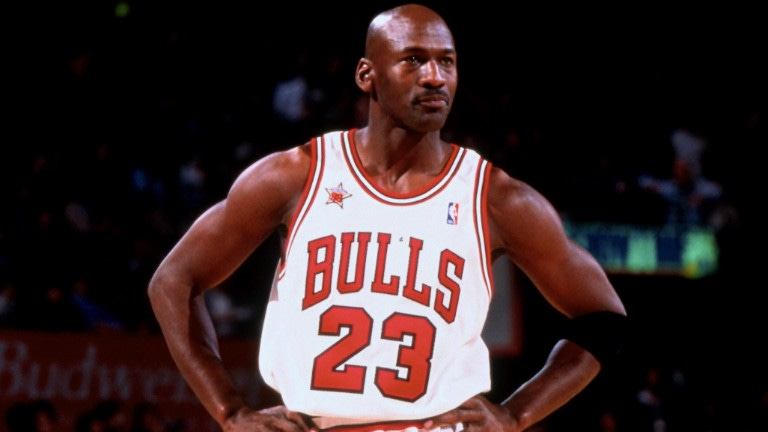
I’m not foolish enough to get on either side of the MJ vs. Kobe debate, but it’s worth contrasting their approaches. Jordan was the ultimate competitor; for him, winning was everything. In an excerpt from Eleven Rings, Phil Jackson describes the difference:
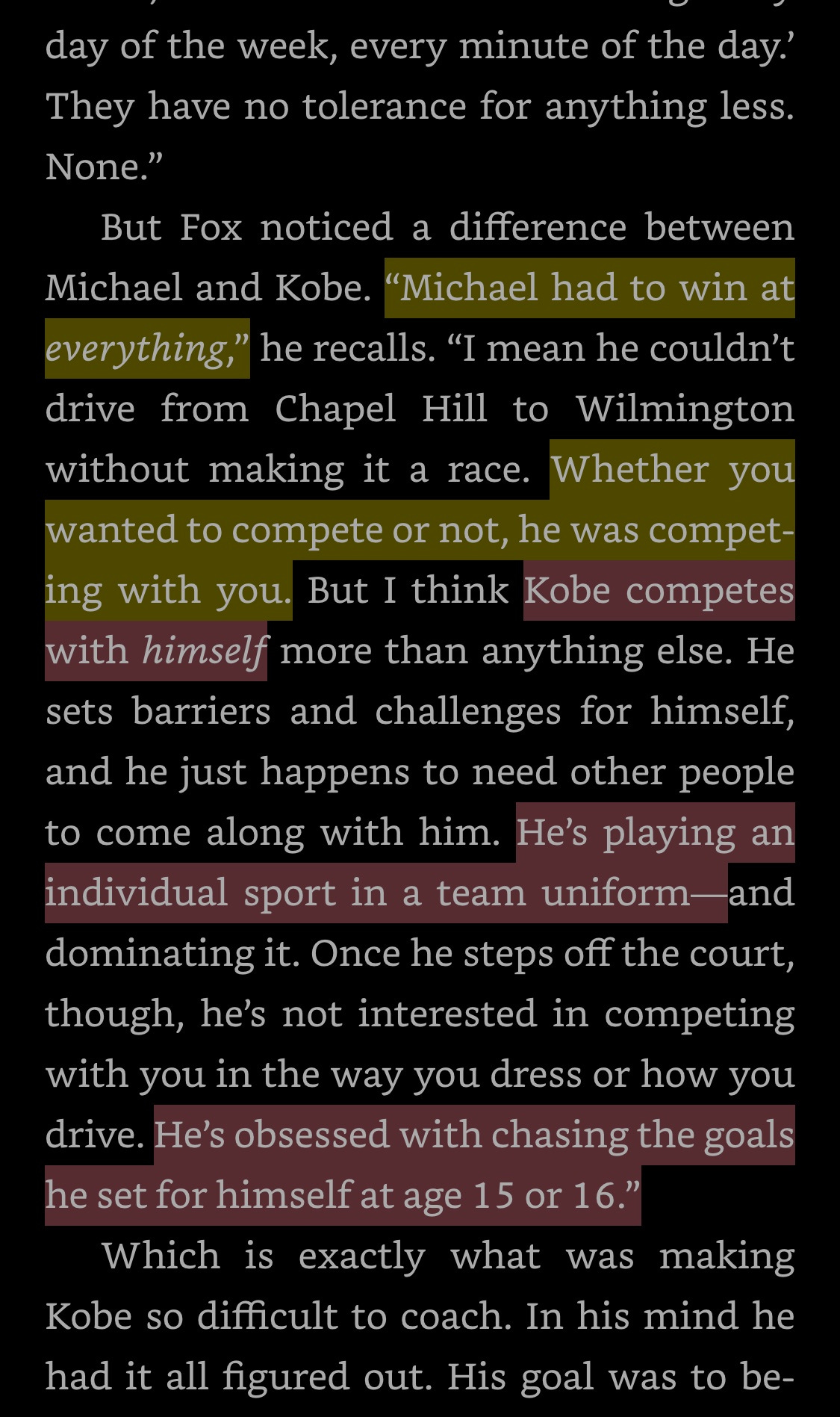
The Recipe
Obsession is not a choice. The individuals described above are among the lucky few that were able to align their obsession and talent to create value for others.
Understanding this provides a useful heuristic for deciding what to work on. If there is something that keeps coming to the top of your mind, then it’s probably worth exploring. When your abilities and interests align, you will be able to put in more hours than your competition. It won’t feel like work, because you’d be doing it anyway.
For a complete list of the books that I’ve enjoyed, including the ones discussed above, you can check out my bookshelf.
🔗 Links
I think of this section as an open-sourced bookmarks tab that anyone can reference. Patrick Collison calls the links roundup “an underrated artifact.”
An unconventional job posting from Dominic Cummings, Special Adviser to Boris Johnson and strategist of the UK’s Brexit campaign
The job posting calls for:
Data scientists and software developers
Economists
Policy experts
Project managers
Communication experts
Junior researchers one of whom will also be my personal assistant
Weirdos and misfits with odd skills
I wasn’t familiar with Dominic before this post, and it seems like he is a polarizing figure. Nonetheless, I am absolutely fascinated by the content of this listing, which is highly unusual for a government position. It appears as though Mr. Cummings is no stranger to these types of writings; here is a 237 page (!!) essay he wrote on how politicians should receive education to prepare them for government.
Don’t Eat Before Reading This; A New Yorker article from 1999 written by Anthony Bourdain, describing some of the less savory practices within restaurants.
Some highlights:
People who order their meat well-done perform a valuable service for those of us in the business who are cost-conscious: they pay for the privilege of eating our garbage.
Then there are the People Who Brunch. The “B” word is dreaded by all dedicated cooks.
In a good restaurant, what this all adds up to is that you could be putting away almost a stick of butter with every meal.
Bon Appétit!
A visualization of the world’s top 100 websites
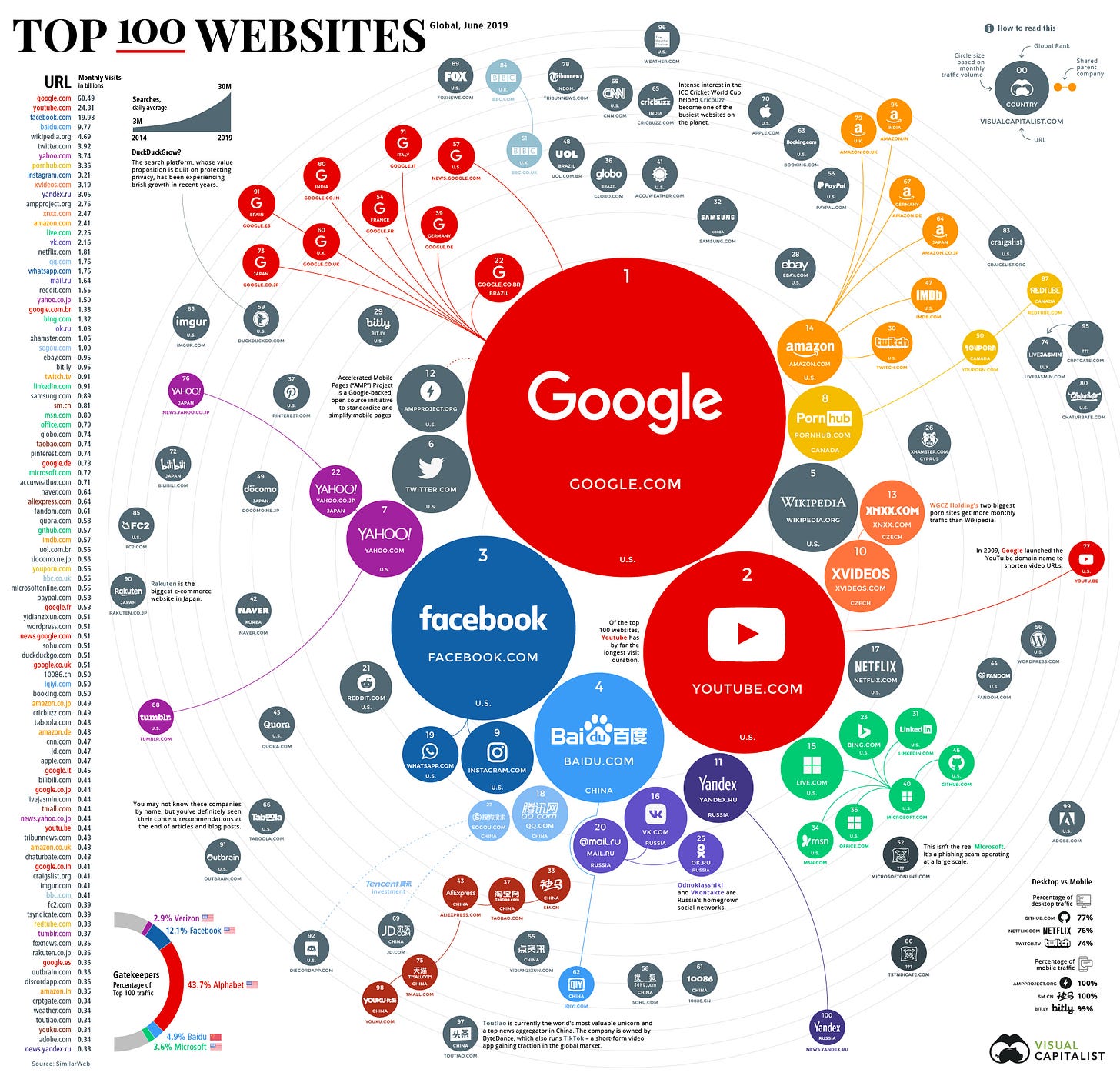
📊 Charts
A picture is worth a thousand words, and this section curates the best infographics and charts that tell a story about our world.
Every day over the past five years, an average of 640,000 people went online for the first time.
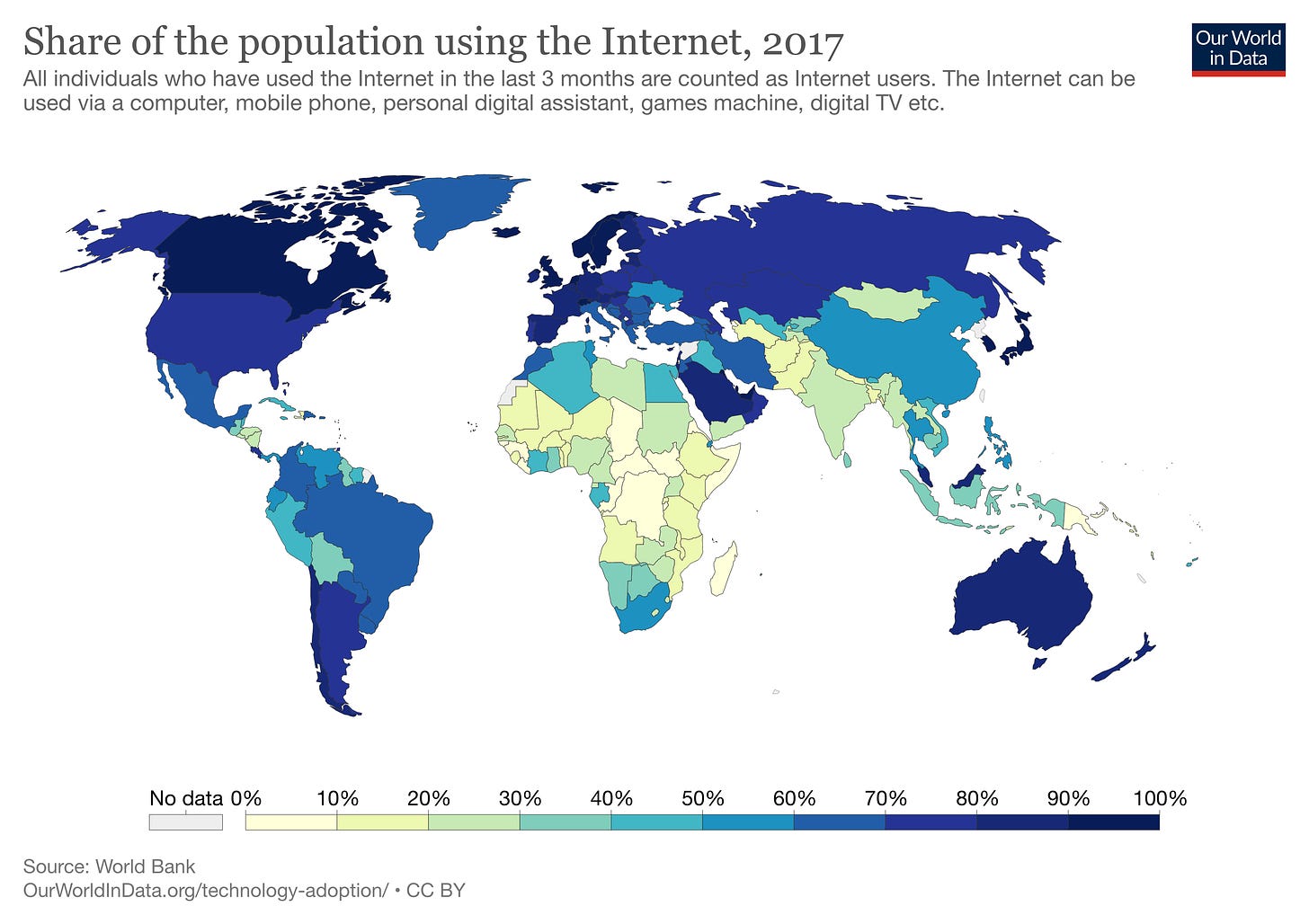
💎 Quotes
“His fingers were permanently yellowed with chalk dust rather than nicotine, but it was still the residue of an addicting substance.”
Stephen King
⬇️ Follow me on Twitter and Medium.
Sunday Scaries is a newsletter that summarizes my findings from the week in technology. It's part soapbox, part informative. It's free, you’re reading it right now, and you can subscribe by clicking the link below 👇



